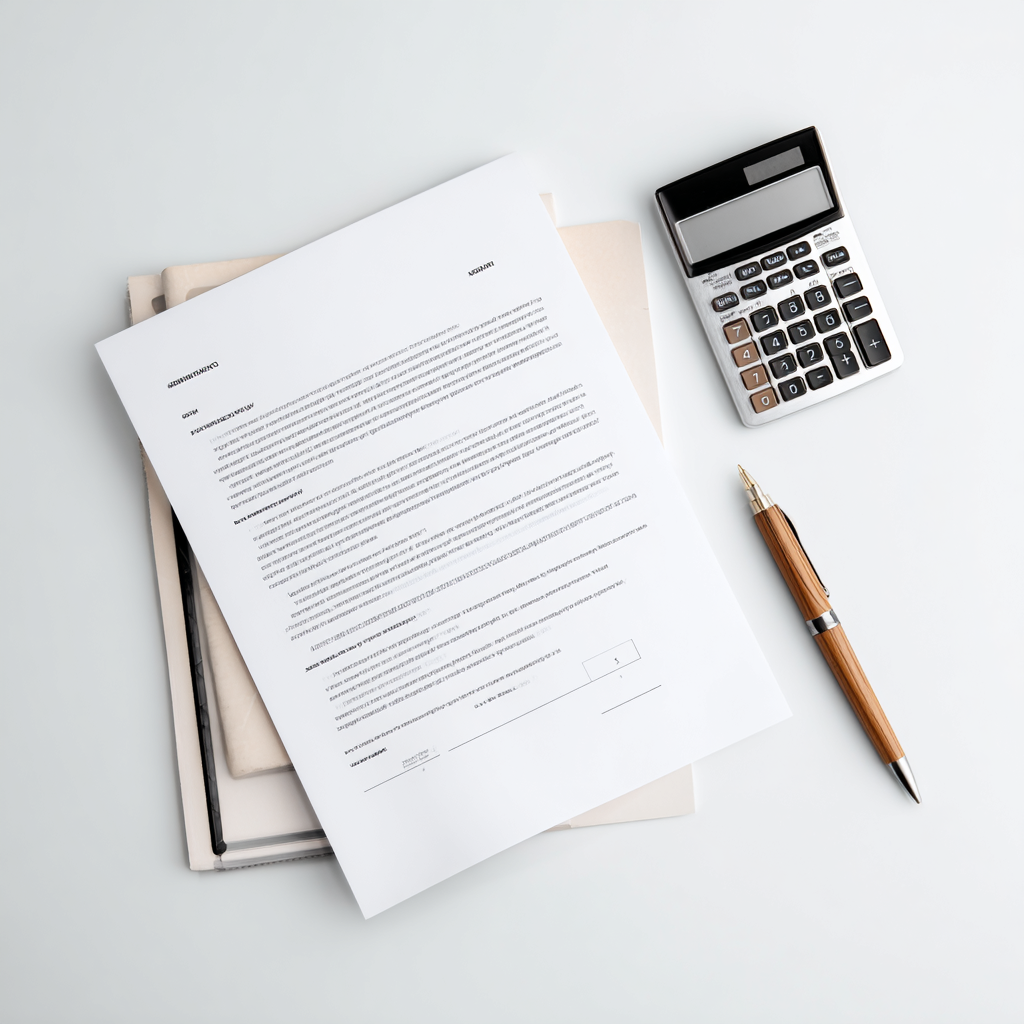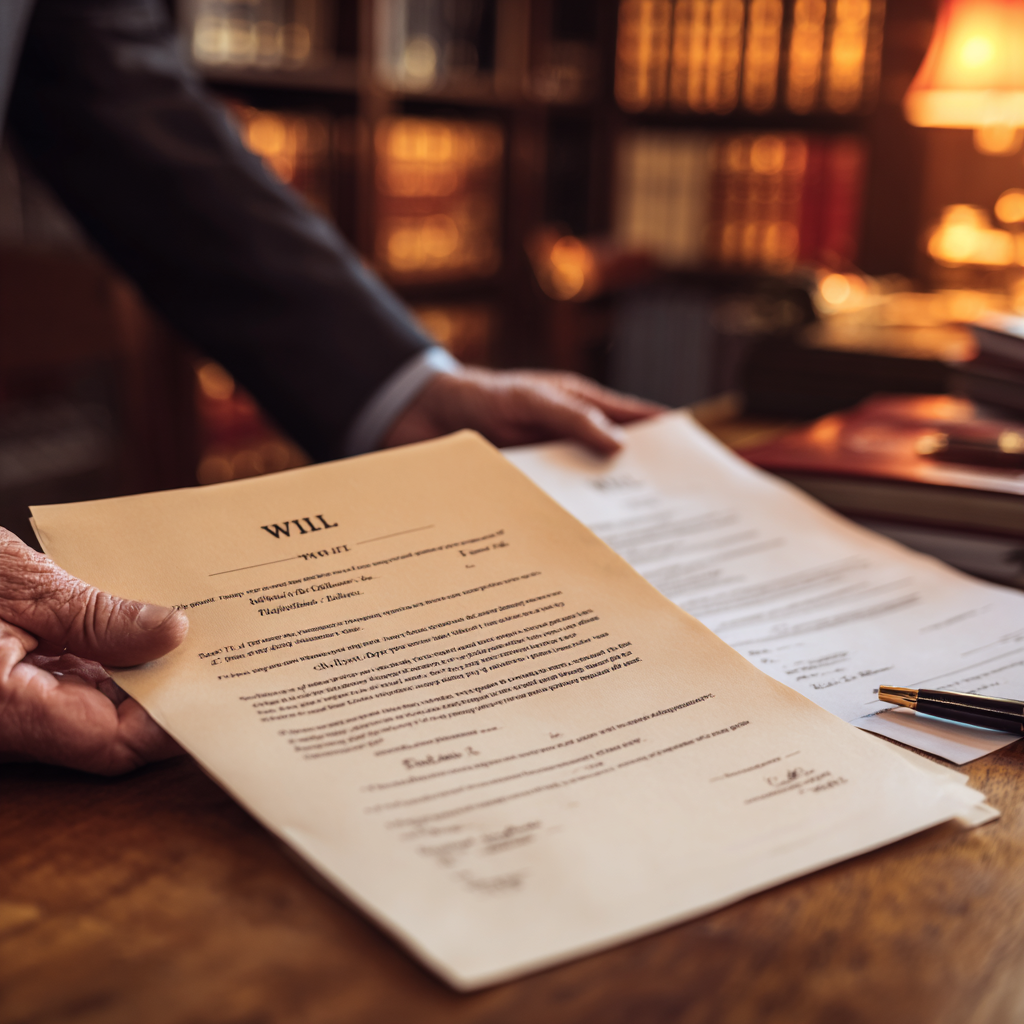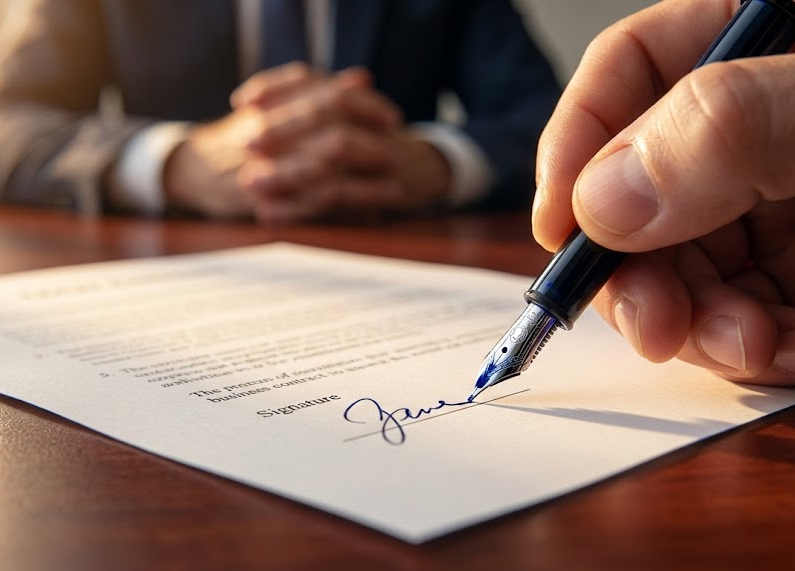Sometimes, a letter needs to carry more official weight. If you’re giving permission or making a formal statement, just signing it yourself might not be enough for the recipient. Getting your signature verified by a notary public adds crucial credibility and creates a notarized document, also known as a “notarized letter.”
In this article, we not only provide an example of a notarized letter but also explain what it is and why you might need one for important situations.
Read as well: Notarized birth certificate – clarifying a common misconception
Example of notarized letter: what goes into one?

Seeing an example of a notarized letter often helps clarify what’s involved. While the specific content will always depend on your needs, the basic structure of the letter and where the notary’s part fits is consistent.
Here’s a simple template to guide you in drafting a letter you intend to have notarized:
[Your name]
[Your address]
[Your city, state, zip code]
[Your phone number]
[Your email address]
[Date]
[Recipient name or title]
[Recipient address]
[Recipient city, state, zip code]
Subject: [clear and concise subject line, e.g., Authorization for Medical Treatment for Minor]
Dear [recipient name or title],
This letter serves as [state the purpose of the letter and the action being authorized or the statement being made; be specific and provide all necessary details, like any limitations or specific instructions].
(for example: “authorization for my son, [child’s full name], born [child’s date of birth], to receive medical treatment from your facility, [hospital/clinic name], while he is in the care of [custodian’s full name] from [start date] to [end date].”)
[Add any additional relevant information or details necessary for the recipient to understand and act upon the letter’s content.]
I confirm that the statements made herein are true and accurate to the best of my knowledge. [This sentence is particularly relevant if the letter acts as a declaration or affidavit.]
If you require further verification or have any questions regarding this matter, please contact me directly at [your phone number] or [your email address].
Sincerely,
_________________________
[Your typed full name]
— NOTARY SECTION BELOW THIS LINE —
(This area is for the Notary Public ONLY. Do NOT write or sign in this section.)
[Space for Notary Certificate, Seal, and Signature. The notary will attach or imprint a specific notarial wording here.]
Looking at this example of a notarized letter, you can see it’s essentially a standard letter.
The top part includes your contact information, the date, and the recipient’s information, just like any professional letter. The body of the letter is where you clearly state the purpose, provide details, and make your request or statement. You also include your name and a line for your signature at the bottom.
There’s also an area to be left blank by you, as the notary will add their official certification after they witness you sign.
This structure ensures the letter’s content comes from you, while the notarization confirms the authenticity of your signature on that content.
Right, but what exactly is a notarized letter?

Building on the notarized letter we just saw, let’s formally define what this document represents.
A notarized letter is simply a letter that has been signed by the author in the presence of a notary public, and the notary has then completed a notarial act verifying that signature.
It’s crucial to understand precisely what the notary is verifying in this context. The notary public is not reading your letter and confirming that the contents are truthful or accurate. Their role is much more specific and limited.
The notary’s primary job is to verify the identity of the person signing the letter and to witness the act of signing. They are confirming that you are indeed who you say you are and that you signed the document on a specific date.
So, what does adding notarization to a letter actually achieve? It adds several layers of verification and credibility. It provides independent, official confirmation of the signer’s identity. It also creates a formal, recorded event of the signing, including the date and location, which can be important for legal or administrative purposes.
As notaries are impartial public officials, their involvement lends an air of professionalism and increased trustworthiness to the letter, making it more likely to be accepted and relied upon by the recipient.
Why would you need a notarized letter?
While a simple signature on a letter works fine for most everyday communication, there are distinct situations where your written statement needs an added layer of credibility and legal verification.

In these cases, the simple act of signing isn’t sufficient, as the recipient needs assurance that the signature is genuine and willingly made by the person whose name appears on the document. This is why you turn to notarization, transforming a standard letter into a document carrying more formal weight.
One such situation involves granting consent for a minor child’s medical treatment when you can’t be present, or authorizing someone to travel internationally with your child. Other common needs include authorizing another person to pick up important documents or access records on your behalf.
Sometimes, you might even need to provide a formal written statement of facts for legal or insurance purposes, or have someone write a letter verifying information like your residency, and notarization adds crucial credibility to their declaration.
Many institutions or government agencies also have specific requirements for documents submitted to them, and they may explicitly request a notarized letter as part of their process.
In all these use cases, to reiterate, the notarization doesn’t authenticate the letter’s content, but rather the identity and signature of the person signing it.
How to get your letter notarized
Once you understand why you need a notarized letter and have drafted its content, the process of getting it notarized is well-structured and easy to follow.
First, write your letter completely, including all necessary details and leaving a space for your signature at the end. It is absolutely crucial that you do not sign the letter before you meet with the notary. The signing must occur in the notary’s direct presence, as they are witnessing that very act.
Next, you’ll appear before a commissioned notary public. Bring your completed, but unsigned, letter, along with valid identification.
The notary requires a current, government-issued photo ID – think a driver’s license or passport – to verify that you are indeed the person whose name appears on the document. Once your identity is confirmed, you will sign the letter right there in front of the notary.

You can read more about all forms of valid ID here!
Finally, the notary will add their official notarial certificate to your letter, selecting the appropriate wording (usually an Acknowledgment for a letter), filling it out, affixing their official seal, and adding their signature. They will also record the details in their official journal, completing the formal process and making your letter legally notarized.
Conclusion
Understanding the purpose and process behind a notarized letter, like the example of a notarized letter provided, helps you add extra credibility and verification to your important written statements.
One last time, notarization validates the signer’s identity and the act of signing the letter, not the truthfulness of its contents. This verification is often essential for letters granting consent, authorizing actions, or providing formal declarations for official or legal purposes.
If you need to get a letter or any other document notarized, the process should be simple and convenient. We at Mobile Notary Orlando offer professional mobile notary services, bringing the notary to your preferred location in Orange, Seminole, Osceola, and Brevard counties.
We make it easy to get your letters of consent, authorization, or any other documents accurately and reliably notarized, saving you time and hassle. Contact us today to schedule your appointment and experience the convenience of professional mobile notarization!






